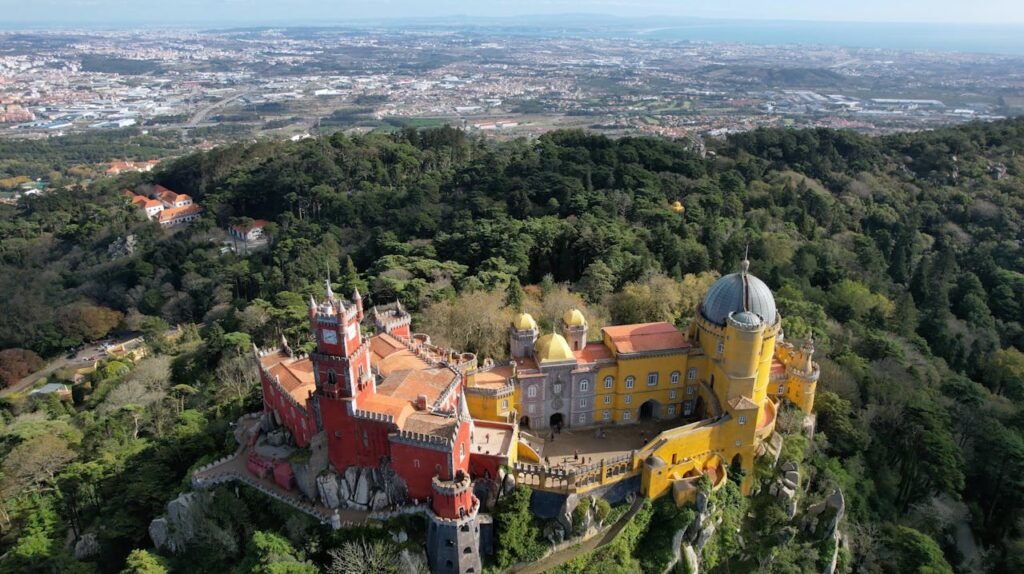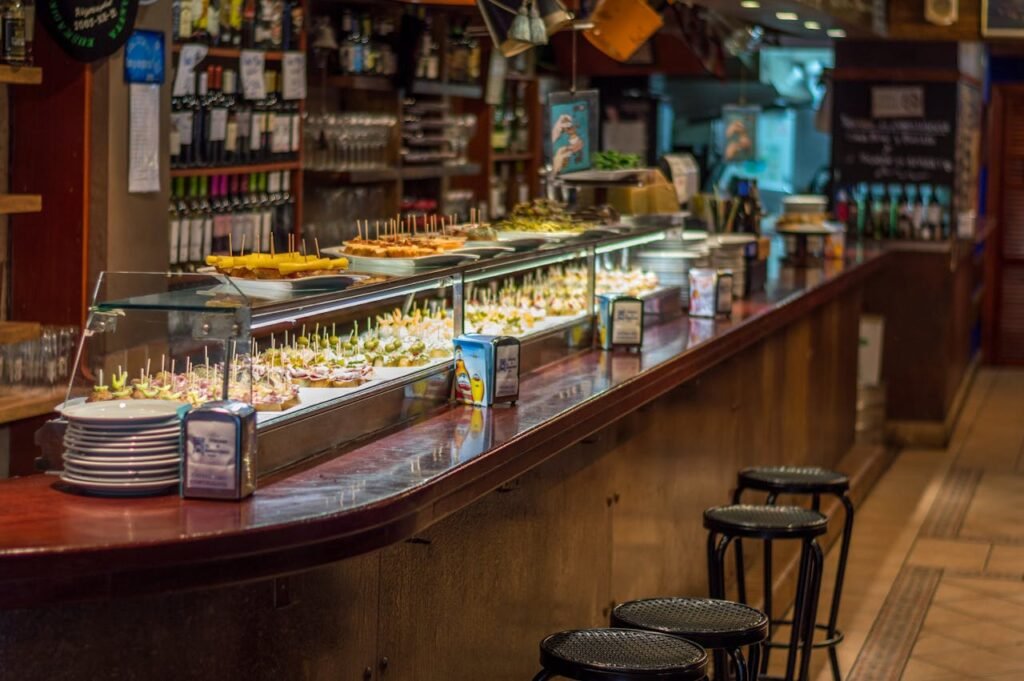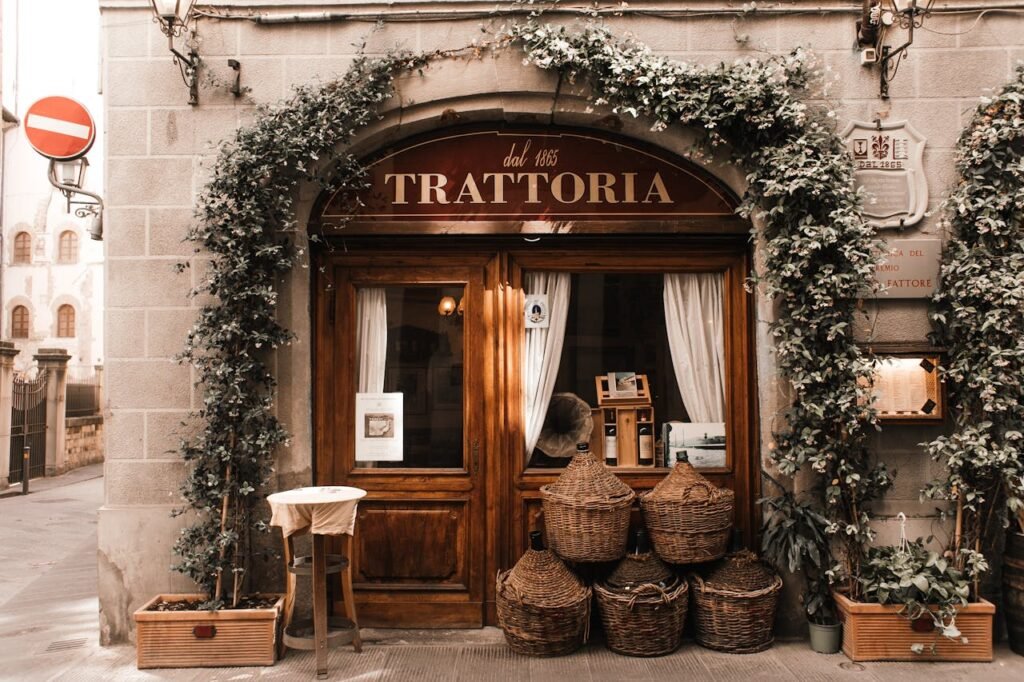
LISBON…
Lisbon. Ah, Lisbon! The name rolls off the tongue like a fine Portuguese wine. Sun-drenched hills, colourful houses cascading to the sea, and the aroma of fresh pastries wafting through cobbled streets. Sounds pricey? Think again! Lisbon is a budget traveller’s dream, where ancient history meets modern cool without draining your funds. Forget those pricey European capitals. Lisbon’s charm lies in its affordability. You can wander through centuries-old neighbourhoods, soak up stunning views from hilltop miradouros (viewpoints), and savour delicious local cuisine without breaking the bank. So ditch those overpriced guidebooks and hop on board! We’re about to unlock the secrets of Lisbon, one budget-friendly adventure at a time. Get ready to ditch those tourist traps and uncover the heart and soul of Lisbon. From savouring cheap and cheerful meals to navigating the city like a local, I’m here to guide you every step of the way. So, loosen your belt, grab your walking shoes, and get ready for an unforgettable Lisbon adventure that won’t have your wallet crying socorro!

Let’s talk food, people! Lisbon is a foodie paradise, even if you’re on a tight budget. Forget fancy restaurants; the real culinary treasures are found in local tascas (small restaurants) and bustling markets. Start your day with a strong bica (espresso) and a pastel de nata (custard tart) for under two euros. Trust me, these little slices of heaven are worth every penny! For lunch, dive into the world of Portuguese comfort food. A hearty bowl of caldo verde (kale and potato soup) or a bifana (pork steak sandwich) will set you back just a few euros. And don’t even get me started on the seafood! Lisbon’s proximity to the Atlantic means fresh catches are plentiful and affordable. Head to the Mercado da Ribeira, Lisbon’s bustling food market, for a feast for the senses (and your wallet). From freshly grilled sardines to mouthwatering cheeses and cured meats, you can sample a variety of Portuguese delicacies without breaking the bank. Remember, sharing is caring (and budget-friendly!), so grab a few friends and sample your way through the market’s culinary delights.
Traditional Dishes
One of the most iconic dishes in Lisbon is bacalhau, or salted codfish. This versatile ingredient is a staple in Portuguese kitchens, and it’s said there are more than 365 ways to prepare it—one for each day of the year. Among the most popular versions are bacalhau à Brás, shredded cod mixed with eggs, onions, and potatoes, and bacalhau com natas, a creamy cod casserole.
Another beloved dish is sardinhas assadas, grilled sardines, especially popular during the summer festivals like Santo António in June. The sardines are typically grilled whole, seasoned simply with salt, and served with potatoes, salad, or bread. The simplicity of the preparation allows the fresh flavor of the fish to shine through.
Pastéis de Nata
No discussion of Lisbon’s food would be complete without mentioning pastéis de nata, the famous Portuguese custard tarts. These flaky pastries, filled with a rich, creamy custard, are best enjoyed fresh from the oven. The most famous place to savor them is at Pastéis de Belém, a bakery near the Jerónimos Monastery that has been serving these delicacies since 1837. The recipe is a closely guarded secret, but the combination of a crispy pastry shell and a smooth, sweet filling makes them irresistible.
Seafood and Fresh Produce
Given its coastal location, Lisbon has a bounty of fresh seafood. Dishes like arroz de marisco (seafood rice), polvo à lagareiro (octopus with olive oil and potatoes), and amêijoas à Bulhão Pato (clams in a garlic, olive oil, and cilantro sauce) showcase the city’s connection to the sea. These dishes often highlight the quality of the ingredients, with simple seasonings that enhance the natural flavors.
The city’s markets, such as Mercado da Ribeira, also known as Time Out Market, offer a glimpse into the local produce and culinary traditions. Here, visitors can sample everything from freshly caught fish to regional cheeses, cured meats, and a variety of fruits and vegetables. The market has become a hub for both traditional vendors and modern food stalls, representing the dynamic nature of Lisbon’s food culture.
Contemporary Cuisine
In recent years, Lisbon has also seen a surge in contemporary culinary innovation. Chefs like José Avillez have gained international acclaim for their inventive takes on Portuguese cuisine, blending traditional flavors with modern techniques. Restaurants such as Belcanto, with its two Michelin stars, showcase dishes that are as visually stunning as they are delicious, offering a fine dining experience that reflects the city’s evolving food scene.
Wine and Beverages
To accompany the diverse culinary offerings, Portugal produces a wide range of wines, with the Lisbon region itself known for its excellent reds and whites. The nearby regions of Alentejo, Douro, and Dão also contribute to the wine selection, providing ample options for pairing with any meal.
Lisbon’s food scene is a rich tapestry of traditional flavors and modern innovation. Whether indulging in the comfort of a classic bacalhau dish, savoring a freshly baked pastel de nata, or exploring the latest gastronomic trends, the city offers a culinary journey that delights both locals and visitors alike.

Who says fun has to cost a fortune? Lisbon is brimming with free attractions that will leave you breathless (and with some extra euros in your pocket). Start by getting lost in the city’s charming neighbourhoods. Alfama, with its narrow, winding streets and colourful houses, is a photographer’s dream. Climb to the top of one of Lisbon’s many miradouros for breathtaking panoramic views. The Miradouro da Senhora do Monte offers stunning vistas over the city and the Tagus River. And for a dose of history, explore the ruins of the Carmo Convent, destroyed in the 1755 earthquake. So ditch those expensive guided tours and create your own adventure. Lisbon’s free attractions are best explored on foot, allowing you to soak up the city’s vibrant atmosphere and discover hidden gems along the way. Remember, the best things in life are free (or at least very affordable in Lisbon!).
Belém Tower
One of Lisbon’s most iconic landmarks, the Belém Tower, is a UNESCO World Heritage site that dates back to the early 16th century. Originally built as a fortress to guard the entrance to Lisbon’s harbor, this Manueline-style tower is a symbol of Portugal’s Age of Discoveries. Visitors can explore the tower’s interior, which includes a small museum, and climb to the top for panoramic views of the Tagus River.
Jerónimos Monastery
Close to the Belém Tower, the Jerónimos Monastery is another UNESCO World Heritage site and a masterpiece of Manueline architecture. This impressive monastery was built to commemorate Vasco da Gama’s voyage to India and houses the tomb of the famous explorer. The church and cloisters are ornately decorated with maritime motifs and are considered a high point of Portuguese art.
Alfama District
The Alfama district, one of the oldest neighborhoods in Lisbon, offers a glimpse into the city’s past with its narrow, winding streets and traditional houses. This area is famous for its Fado music clubs, where visitors can enjoy the soulful and melancholic tunes that are a significant part of Portuguese culture. The district is also home to the Lisbon Cathedral, a stunning example of medieval architecture.
Castle of São Jorge
Perched on a hilltop, the Castle of São Jorge provides breathtaking views over Lisbon and the Tagus River. This historic fortress dates back to Moorish times and has played a crucial role in the city’s history. Today, the castle is a popular tourist attraction, offering visitors a chance to explore the ancient ramparts, gardens, and a small archaeological museum.
Bairro Alto and Chiado
Bairro Alto and Chiado are two of Lisbon’s most vibrant districts, known for their lively nightlife, trendy shops, and excellent restaurants. During the day, visitors can explore the chic boutiques and traditional bookstores of Chiado. By night, Bairro Alto transforms into a hub of activity, with numerous bars and clubs offering everything from live music to quiet cafes.
Oceanário de Lisboa
For families and marine life enthusiasts, the Oceanário de Lisboa is a must-visit. This impressive aquarium is one of the largest in the world and features a wide variety of marine species, including sharks, rays, and tropical fish. The central tank, designed to resemble an open ocean, is particularly captivating.
Lisbon’s Viewpoints
Lisbon is known for its scenic viewpoints, or “miradouros,” which offer stunning views of the city and its surroundings. Miradouro de Santa Catarina and Miradouro da Senhora do Monte are two of the most popular, providing panoramic vistas of the city’s red rooftops, the Tagus River, and beyond. These spots are perfect for enjoying a sunset or a relaxing afternoon.
Tram 28
A ride on the iconic Tram 28 is a quintessential Lisbon experience. This historic tram route winds through many of Lisbon’s most picturesque neighborhoods, including Graça, Alfama, and Baixa. The tram ride offers a charming way to see the city’s sights, from historic buildings to bustling squares.
Museu Calouste Gulbenkian
For art lovers, the Museu Calouste Gulbenkian is an essential stop. This museum houses a world-class collection of art, ranging from ancient Egyptian artifacts to works by European masters like Rembrandt and Monet. The museum’s beautiful gardens also provide a peaceful retreat from the city’s bustle.
These attractions, along with Lisbon’s rich cultural tapestry, make the city a fascinating destination for travelers seeking history, art, and authentic Portuguese experiences. Whether exploring ancient monuments, enjoying local cuisine, or simply taking in the stunning views, Lisbon offers a unique and memorable experience.

Don’t let accommodation costs eat into your Lisbon budget! Forget fancy hotels; the city offers a range of budget-friendly options that won’t break the bank. Hostels are a great way to meet fellow travellers and save some euros. Look for hostels in central locations like Baixa or Chiado for easy access to attractions and nightlife. Guesthouses and pensions are another affordable option, often run by friendly locals who can offer insider tips. For a more local experience, consider renting an apartment or a room through Airbnb. You’ll have more space and the chance to cook your own meals, saving you even more money. Remember, location is key when choosing budget accommodation in Lisbon. Staying in central neighbourhoods like Baixa, Chiado, or Alfama will save you money on transportation and allow you to explore more on foot. So pack light, embrace the shared bathroom experience, and get ready for a budget-friendly sleep in Lisbon!
Navigating Lisbon is a breeze, even on a budget. Forget expensive taxis; the city’s public transportation system is efficient, affordable, and easy to use. Purchase a Viva Viagem card, which can be used on the metro, buses, trams, and even the iconic yellow funiculars. For longer distances, consider taking the train. Lisbon has excellent train connections to other parts of Portugal, making it easy to explore beyond the capital. However, walking is arguably the best way to experience Lisbon’s charm. The city is surprisingly walkable, and you’ll discover hidden gems and breathtaking viewpoints along the way. Just be prepared for some hills! But hey, consider it a free workout and a chance to burn off those delicious Portuguese pastries.
Lisbon is also shopper’s paradise, even for budget-conscious travellers. Forget those high-end boutiques; the real treasures are found in the city’s traditional shops, markets, and flea markets. For unique souvenirs, head to Feira da Ladra, Lisbon’s oldest flea market. You’ll find everything from antiques and vintage clothing to handmade crafts and local produce. If you’re looking for traditional Portuguese goods, explore the shops in the Baixa district. Here you’ll find beautiful ceramics, embroidered linens, and leather goods at reasonable prices. It’s part of the fun and can often score you a better deal. Remember, shopping in Lisbon is about the experience as much as the purchase. Take your time, browse the shops, and chat with the friendly locals. You never know what treasures you might uncover!

Lisbon comes alive at night, and you don’t need to spend a fortune to experience its vibrant nightlife. Forget those pricey nightclubs; the real fun is found in the city’s cozy bars, traditional fado houses, and lively neighbourhoods. Start your evening with a drink and a petisco (Portuguese tapas) at one of the many bars in the Bairro Alto district. For a taste of authentic Portuguese culture, head to a fado house. These intimate venues showcase the soulful sounds of fado, Portugal’s traditional folk music. While some fado houses can be pricey, many offer affordable shows, especially during the week. For a truly budget-friendly night out, grab a bottle of wine and head to one of Lisbon’s many miradouros. The views of the city lights are magical, and the atmosphere is unbeatable. Soak up the city’s energy, mingle with the locals, and enjoy the simple pleasures of a Lisbon night.
Lisbon is more than just a destination; it’s a gateway to adventure. And the best part? Exploring beyond the city limits doesn’t have to break the bank. Just a short train ride away lies Sintra, a fairytale town filled with palaces, castles, and lush gardens. Spend a day wandering through Pena Palace, exploring the Moorish Castle, or getting lost in the Quinta da Regaleira’s enigmatic gardens. Sintra is a place where history and fantasy intertwine, offering a unique escape from the hustle and bustle of city life. The town itself is a UNESCO World Heritage site, and every corner you turn reveals another piece of its rich history and stunning architecture. For a taste of beach life, hop on a train to Cascais or Estoril. These charming coastal towns offer sandy beaches, crystal-clear waters, and a more relaxed pace of life. Cascais, with its picturesque marina and vibrant town centre, is perfect for a leisurely day by the sea. Estoril, known for its grand casino and beautiful promenade, offers a touch of glamour and tranquillity. And if you’re feeling adventurous, rent a car and explore the stunning beaches and hidden coves of the Algarve, Portugal’s southernmost region. The Algarve is renowned for its dramatic cliffs, golden beaches, and quaint fishing villages. Whether you’re surfing the waves at Praia da Rocha or exploring the caves of Lagos, the Algarve promises an unforgettable experience. So there you have it, folks! Lisbon is a city that effortlessly blends history, culture, and affordability. From its delicious food and free attractions to its budget-friendly accommodation and transportation options, Lisbon offers something for everyone, regardless of their budget.
The city’s culinary scene is a feast for the senses, with traditional dishes like bacalhau à brás and pastéis de nata that won’t break the bank. Street markets and local eateries provide a taste of authentic Portuguese cuisine at a fraction of the cost. For those who love history and culture, Lisbon’s many museums and historic sites often offer free or discounted entry. The iconic tram 28 is not only a convenient way to get around but also a moving museum, taking you through some of the city’s most historic neighbourhoods. Accommodation in Lisbon ranges from budget hostels to affordable boutique hotels, ensuring that every traveller can find a place to stay that suits their needs. Public transportation is both efficient and economical, making it easy to explore the city and beyond without spending a fortune. So what are you waiting for? Pack your bags, grab your sense of adventure, and get ready to experience the magic of Lisbon without breaking the bank! Whether you’re a history buff, a foodie, or an outdoor enthusiast, Lisbon has something to offer. The city’s vibrant nightlife, with its lively bars and clubs, ensures that the fun doesn’t stop when the sun goes down. Outdoor activities abound, from hiking in the nearby Sintra mountains to sailing along the Tagus River. Lisbon’s unique blend of old-world charm and modern amenities makes it a perfect destination for travellers of all types. So come and discover why Lisbon is not just a place to visit, but a place to experience. Your budget-friendly gateway to adventure awaits!

Maintaining Wellbeing While Traveling on a Budget…
Traveling on a budget does not necessitate compromising on your wellbeing. It is crucial to prioritize both physical and mental health while exploring new destinations. One of the fundamental aspects of maintaining physical wellbeing during budget travel is ensuring a balanced diet. Opt for local markets and grocery stores to purchase fresh fruits, vegetables, and wholesome foods. These options are not only cost-effective but also nutritious. Avoid the temptation of inexpensive fast food, which can be detrimental to your health in the long run.
Staying hydrated is another key factor in preserving your physical health. Carry a reusable water bottle to refill throughout the day, reducing the need for purchasing bottled water. This practice is both economical and environmentally friendly. Additionally, incorporate regular exercise into your travel routine. Many budget-friendly accommodations offer access to gyms or fitness centres. If these facilities are unavailable, explore outdoor activities such as hiking, walking tours, or even simple stretching exercises in your room.
Mental wellbeing is equally important during your travels. Managing stress and avoiding travel burnout can be challenging but achievable. One effective strategy is to practice mindfulness. Techniques such as meditation and journaling can be easily integrated into your daily routine, no matter where you are. Meditation apps or guided sessions can provide structure, while journaling allows for reflection and decompression after a busy day of exploration. Being refreshed also keeps you mentally sharper. Remember! You’re in a new country and although most people are friendly you still need to have you’re wits about you.
It is also beneficial to allocate time for relaxation and self-care. Budget travel often involves a packed itinerary, but scheduling downtime helps in recharging your mental and physical batteries. Engage in activities that bring you joy, be it reading a book, enjoying a quiet moment in nature, or connecting with fellow travelers. Remember, the goal is to enjoy your travels while keeping your overall well-being in check, making the journey as enriching and pleasant as possible. Factor in time for rest day, set aside a day where you just saunter and take it all in, and allow yourself to relax.

